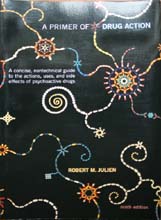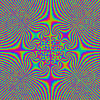Everybody gets some inflammation in his or her body. Sinusitis is quite common, as are bronchitis, tendinitis and other “i’ itis’s”. Nevertheless, when the mind is involved, this is considered a special case.

[en]
Everybody gets some inflammation in his or her body. Sinusitis is quite common, as are bronchitis, tendinitis and other “i’ itis’s”. External attacks, as a sudden change of weather, bad food, carelessness, stress or too much effort, can trigger some unbalance in our bodies. Human beings are not perfect. If the inflammation episode does not repeat itself often and it does not become chronic, in most of the cases it will resolve itself spontaneously after few days. No need for special cares but occasionally, some natural treatments or chemical support might be necessary. However, once the symptoms are gone, we can stop the treatment and we use the experience to learn how to take better care of our bodies. Of course, nobody would take painkillers or antibiotics for a year after a complaint is already over.
Nevertheless, when the mind is involved, this is considered a special case. I have a friend in her early 40s, a teacher at university, who is a brilliant and emotionally alive woman. Almost one year ago, she experienced an acute mental episode triggered by a problematic relationship with her lover.
[/en][it]
Tutti sviluppiamo infiammazioni del corpo. La sinusite è abbastanza comune, così come la bronchite, la tendinite e altre “iti”. Le aggressioni esterne – per esempio: un improvviso mutamento climatico, cibo scadente, mancanza di cura personale, stress o sforzo eccessivi – possono provocare squilibri nel corpo. Gli esseri umani non sono perfetti. Se l’infiammazione non si ripete spesso e non diventa cronica, nella maggior parte dei casi sparirà da sé dopo pochi giorni. Non occorrono cure speciali anche se, di tanto in tanto, può essere necessario fare ricorso a trattamenti chimici o naturali.
Tuttavia, una volta spariti i sintomi, possiamo abbandonare la cura e usare l’esperienza per imparare a prenderci meglio cura del nostro corpo. Naturalmente, dopo la scomparsa della malattia, nessuno continuerebbe ad assumere antidolorifici o antibiotici per un anno intero. Ma quando si tratta della mente, il discorso cambia. Una mia amica – professoressa universitaria poco oltre la quarantina – è una donna brillante e molto viva dal punto di vista emotivo. Quasi un anno fa, ebbe una grave crisi psichica provocata dalle difficoltà nei rapporti con il partner.
[/it] Leggi tutto “My friend got a “minditis””
 [en]
[en]

